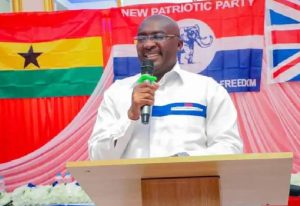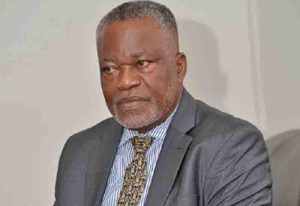Godwin Owusu Frimpong
In a time when Ghanaians are clamoring for urgent action against the detrimental effects of illegal mining, comments from key political figures are raising eyebrows nationwide. Ellen Ama Daaku, a member of the New Patriotic Party’s Communication team, appeared on TV3’s NewDay on September 12, 2024 , where she made headlines for dismissing widespread concerns regarding the pollution of the country’s water bodies, stating, “I don’t think our water bodies have gotten murkier.”
The remarks came as a shock to many, particularly when juxtaposed against the mounting evidence of environmental degradation linked to galamsey activities. Her assertion, which effectively suggests that the situation remains unchanged from previous years, raises questions about her understanding of the ongoing crisis.
Daaku pointed out that river conditions were “worse” during former President Mahama’s administration and argued that the current government’s efforts have mitigated further deterioration. However, her dismissal of the current pollution levels, marked by frequent reports of contaminated water and devastated ecosystems, strikes many as tone-deaf and misaligned with the reality faced by communities across Ghana.
Critics have asked: Has she personally visited any of the polluted water bodies that communities rely on for drinking, washing, and farming? Does she not see the hazardous effects that galamsey activities have wreaked on our rivers, leading to health crises and loss of livelihoods?
Despite acknowledging that illegal mining persists, Daaku emphasized the government’s purported commitment to combating galamsey, urging Ghanaians to scrutinize political parties about their intentions. She highlighted the efforts made to transition illegal miners to legitimate mining operations, suggesting a proactive approach in dealing with the issue. However, many remain unconvinced; the clamor for an immediate ban on galamsey from numerous civil society organizations reflects a widespread call for more decisive action.
As the nation grapples with the environmental and social ramifications of galamsey, the urgency for genuine dialogue and action grows. Her comments, while perhaps intended to defend her party’s track record, inadvertently undermine the pressing concerns of citizens who are witnessing the degradation of their vital resources firsthand.
In the face of activism from groups such as the Ghana Medical Association and the Peasant Farmers Association, who are demanding swift and effective solutions, the question remains: Will leaders like Ellen Ama Daaku truly engage with the realities of those affected, or will they continue to cling to outdated narratives that hamper progress in safeguarding Ghana’s water bodies?
Godwin Owusu Frimpong




